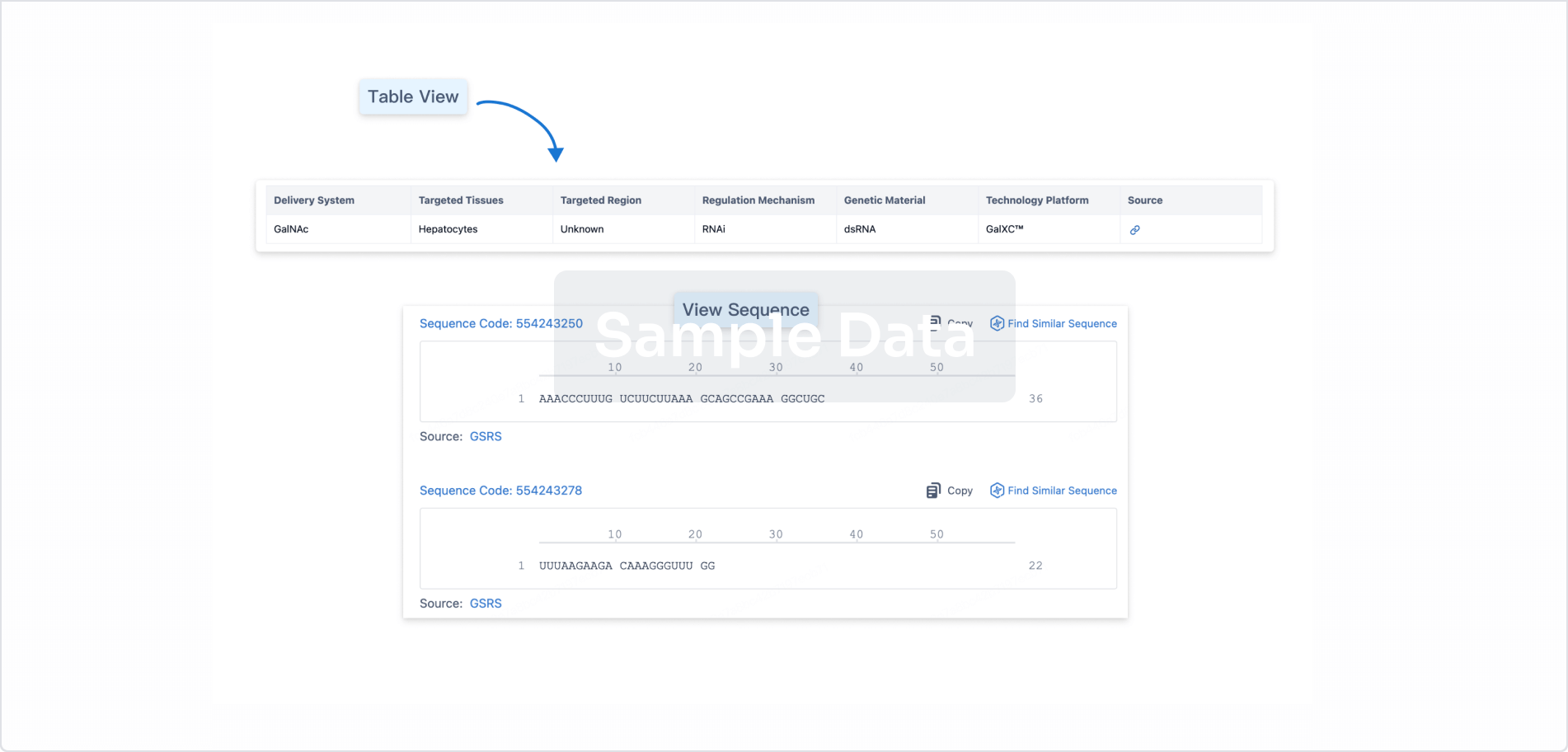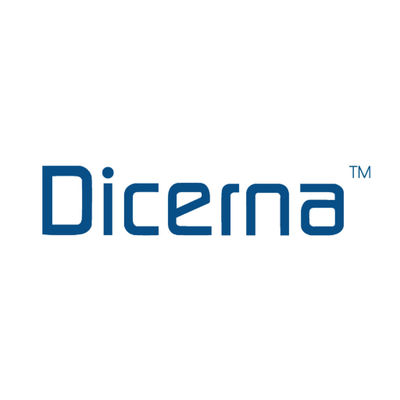Request Demo
Last update 09 Dec 2025
Lepodisiran sodium
Last update 09 Dec 2025
Overview
Basic Info
Drug Type siRNA |
Synonyms LY-3819469 |
Target |
Action inhibitors |
Mechanism lipoprotein(a) inhibitors, RNA interference |
Therapeutic Areas |
Inactive Indication- |
Originator Organization |
Active Organization |
Inactive Organization- |
License Organization |
Drug Highest PhasePhase 3 |
First Approval Date- |
Regulation- |
Login to view timeline
Structure/Sequence
Boost your research with our RNA technology data.
login
or

Sequence Code 1031318338

Source: *****
Sequence Code 1031318735

Source: *****
R&D Status
10 top R&D records. to view more data
Login
| Indication | Highest Phase | Country/Location | Organization | Date |
|---|---|---|---|---|
| Atherosclerosis | Phase 3 | United States | 05 Mar 2024 | |
| Atherosclerosis | Phase 3 | China | 05 Mar 2024 | |
| Atherosclerosis | Phase 3 | Japan | 05 Mar 2024 | |
| Atherosclerosis | Phase 3 | Argentina | 05 Mar 2024 | |
| Atherosclerosis | Phase 3 | Australia | 05 Mar 2024 | |
| Atherosclerosis | Phase 3 | Austria | 05 Mar 2024 | |
| Atherosclerosis | Phase 3 | Belgium | 05 Mar 2024 | |
| Atherosclerosis | Phase 3 | Brazil | 05 Mar 2024 | |
| Atherosclerosis | Phase 3 | Canada | 05 Mar 2024 | |
| Atherosclerosis | Phase 3 | Czechia | 05 Mar 2024 |
Login to view more data
Clinical Result
Clinical Result
Indication
Phase
Evaluation
View All Results
Phase 2 | 320 | (16 mg LY3819469) | hzpgqhyxsv(rgnbpdvono) = fsmurxlfny vipgloqacr (elsccbdfih, 7.37) View more | - | 28 May 2025 | ||
(96 mg LY3819469) | hzpgqhyxsv(rgnbpdvono) = urotraqkns vipgloqacr (elsccbdfih, 2.16) View more | ||||||
Phase 2 | 320 | lepodisiran 16 mg (at baseline and again at day 180) | anqdyrcgic(scuxsqenro) = Dose-dependent, generally mild injection-site reactions occurred in up to 12% (8 of 69) of the participants in the highest lepodisiran dose group. neenllbvcu (pujlpeepei ) | Positive | 30 Mar 2025 | ||
lepodisiran 96 mg (at baseline and again at day 180) | |||||||
Phase 1 | lipoprotein(a) serum concentrations | 48 | mfegcksqcd(zsqhjtqsou) = 1 serious adverse event occurred ejqmdhyfoj (wfkttlzzmy ) | Positive | 05 Dec 2023 | ||
Login to view more data
Translational Medicine
Boost your research with our translational medicine data.
login
or

Deal
Boost your decision using our deal data.
login
or

Core Patent
Boost your research with our Core Patent data.
login
or

Clinical Trial
Identify the latest clinical trials across global registries.
login
or

Approval
Accelerate your research with the latest regulatory approval information.
login
or

Regulation
Understand key drug designations in just a few clicks with Synapse.
login
or

AI Agents Built for Biopharma Breakthroughs
Accelerate discovery. Empower decisions. Transform outcomes.
Get started for free today!
Accelerate Strategic R&D decision making with Synapse, PatSnap’s AI-powered Connected Innovation Intelligence Platform Built for Life Sciences Professionals.
Start your data trial now!
Synapse data is also accessible to external entities via APIs or data packages. Empower better decisions with the latest in pharmaceutical intelligence.
Bio
Bio Sequences Search & Analysis
Sign up for free
Chemical
Chemical Structures Search & Analysis
Sign up for free

